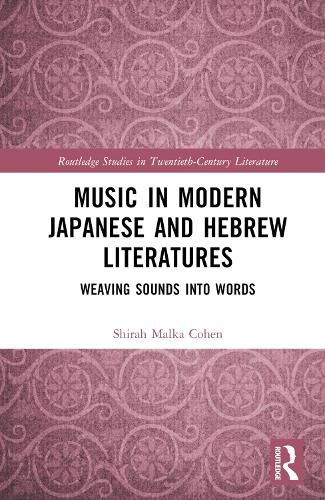Readings Newsletter
Become a Readings Member to make your shopping experience even easier.
Sign in or sign up for free!
You’re not far away from qualifying for FREE standard shipping within Australia
You’ve qualified for FREE standard shipping within Australia
The cart is loading…






Music in Modern Japanese and Hebrew Literatures examines the place of classical music in early 20th-century Japanese and Hebrew literatures. As this book shows, both Japanese and Hebrew writers of the period made use of Western classical music in their novels and short stories in order to explore issues of belonging, cultural and literary identity, and artistic integrity. Hence, by analysing the appearance of such music in the writing of Japanese writers, such as Nagai Kafu, Shiga Naoya, and Uchida Hyakken, and Hebrew writers such as Leah Goldberg, Gershon Shofman, and Ya'akov Horowiz, this book sets an intriguing narrative of writers' interaction with a modernizing world and their struggles to make sense of multitudes of cultural influences. Through these struggles, these Japanese and Hebrew writers created unique visions of literature that constitute, this book argues, a cosmopolitan literary sphere. In looking into these matters, this book aims to recontextualize the place of Japanese and Hebrew literatures of the early 20th century in relation to each other as well as European culture and to create a new and exciting approach to the study of World Literature.
$9.00 standard shipping within Australia
FREE standard shipping within Australia for orders over $100.00
Express & International shipping calculated at checkout
Music in Modern Japanese and Hebrew Literatures examines the place of classical music in early 20th-century Japanese and Hebrew literatures. As this book shows, both Japanese and Hebrew writers of the period made use of Western classical music in their novels and short stories in order to explore issues of belonging, cultural and literary identity, and artistic integrity. Hence, by analysing the appearance of such music in the writing of Japanese writers, such as Nagai Kafu, Shiga Naoya, and Uchida Hyakken, and Hebrew writers such as Leah Goldberg, Gershon Shofman, and Ya'akov Horowiz, this book sets an intriguing narrative of writers' interaction with a modernizing world and their struggles to make sense of multitudes of cultural influences. Through these struggles, these Japanese and Hebrew writers created unique visions of literature that constitute, this book argues, a cosmopolitan literary sphere. In looking into these matters, this book aims to recontextualize the place of Japanese and Hebrew literatures of the early 20th century in relation to each other as well as European culture and to create a new and exciting approach to the study of World Literature.